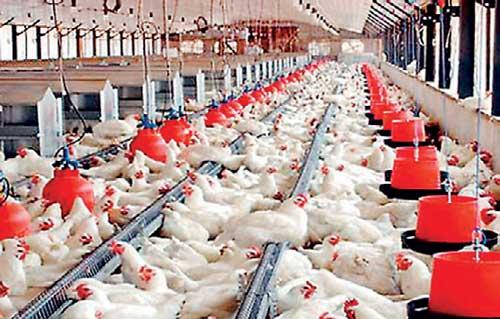Reply To:
Name - Reply Comment
The big three listed poultry industry firms, Ceylon Grain Elevators, Three Acre Farms and Bairaha Farms are expected to have a bounty earnings season for the three months through September and possibly a higher market share as they have received a windfall from the demand-supply mismatch created post the pandemic.
According to Capital Alliance Research (CAL Research), at least seven million day old chicks (DOC) and 140,000 parent birds were culled during lockdowns as demand slumped. However, demand for chicken recovered faster than anticipated with the lifting of lockdowns, creating a demand-supply gap and thereby causing prices to shoot up.
Chicken remains the least priced source of animal protein available in Sri Lanka compared to other meat types.

The DOC prices in Sri Lanka have shot up by 30 percent by July to Rs.90 from pre-pandemic levels in February 2020 while the prices of live birds have soared by 50 percent to Rs.375 per kilogram during the same period.
Sri Lanka’s poultry sector was hit by a double whammy as poultry feed became scarce as maize imports were suspended in January on expected bounty harvest pushing the cost of production higher while the pandemic induced lockdowns put a damper on the demand.
However, the sharp increase in the prices for DOC have more than compensated for the increase in feed prices while offsetting the lost sales during the pandemic, the author of the research report on the sector, Thuvakaran Senthilmani said. “Integrated poultry producers Ceylon Grain Elevators, Three Acre Farms and Bairaha Farms are likely to see a surge in bottom line during the September quarter,” Senthilmani remarked.
At present, a kilogram of chicken is sold at an average price of Rs.375 compared to Rs.250 before the pandemic. During the pandemic, the price slumped to Rs.150 a kilogram, according to CAL Research compiled data.
Meanwhile, estimates have also shown that household demand which consists of 70 percent of the total, and the faster recovery of local restaurants and cafes with the easing of lockdowns, have largely made up for the lost sales from the tourism sector as the latter account for only 8 percent of total chicken consumption.
The import restrictions have pushed local maize prices up by 60 percent to Rs.80 a kilogram, CAL Research said.
However, poultry producers import wheat, a cheaper substitute for maize at a cost of Rs.50 a kilogram, largely addressing the concerns on poultry feed. Earlier this month the government said maize imports would not be resumed but the local cultivation of maize would be ramped up to make up for the imports, and allocated an additional 30,000 hectares of arable lands for cultivation increasing the total land extent available for maize to 110,000 hectares.
CAL Research expects the current higher chicken prices to stay at least for the next six months as it takes an estimated six-month period to increase the supply to pre COVID-19 levels given the fairly longer period it takes for a DOC to become a parent chick and to produce broiler chicken.